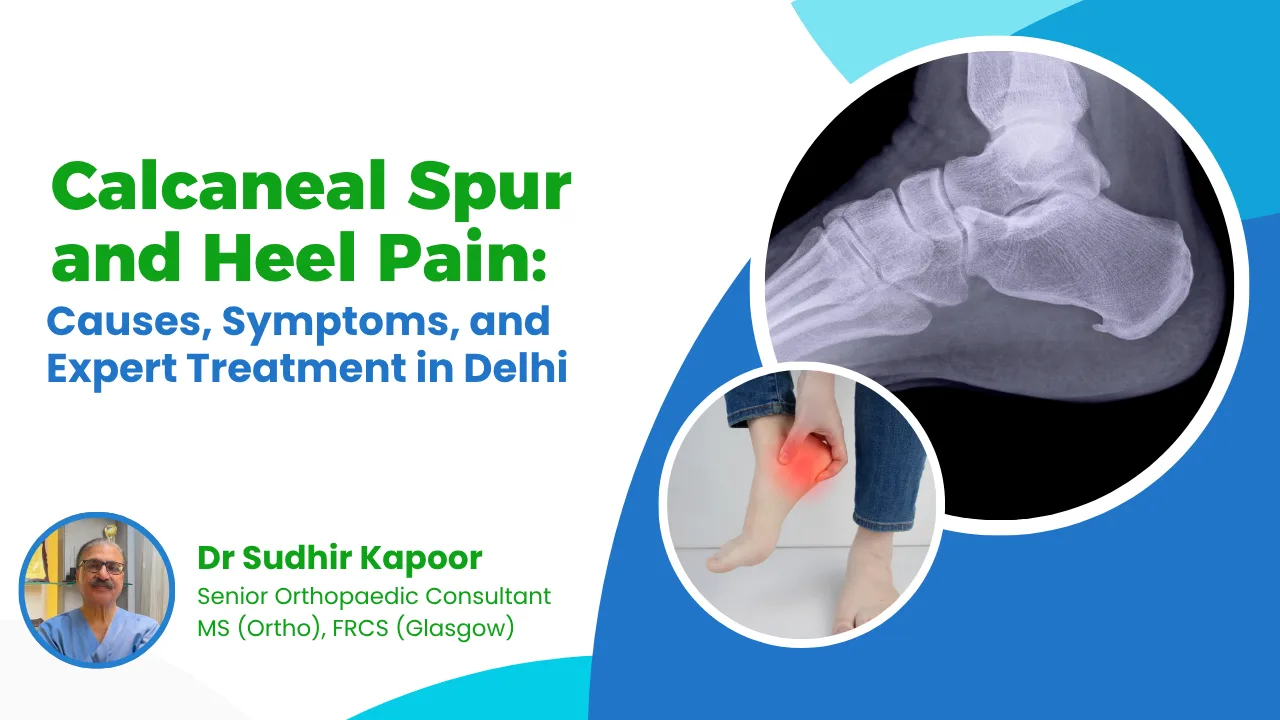Hallux Rigidus is a degenerative condition affecting the big toe joint, causing stiffness, pain, and reduced mobility. Often overlooked, this condition can make walking and other activities involving the foot increasingly difficult. If left untreated, Hallux Rigidus can worsen over time, leading to severe discomfort and limited functionality in the foot. In this post, we will explore what causes Hallux Rigidus, its symptoms, and the best treatment options available. With over 40 years of experience, Dr. Sudhir Kapoor, a leading Orthopaedic surgeon in Delhi, shares his expertise on managing this condition effectively.
What Causes Hallux Rigidus?
Hallux Rigidus is primarily caused by osteoarthritis, a condition where the cartilage in the big toe joint wears down over time. Without proper cushioning, the bones rub against each other, leading to pain, stiffness, and inflammation. Several factors can contribute to the development of Hallux Rigidus, including:
- Genetics: A family history of foot or joint problems can increase the likelihood of developing Hallux Rigidus.
- Injury: Previous injuries to the big toe joint, such as fractures or sprains, can lead to long-term damage and stiffness.
- Repetitive Stress: Activities that place repetitive pressure on the toe, such as running, dancing, or wearing tight footwear, can contribute to joint wear and thereof great toe
- Abnormal Foot Structure: Flat feet or other foot abnormalities can increase stress on the big toe joint, leading to the development of this condition.
Symptoms of Hallux Rigidus
The symptoms of Hallux Rigidus often progress gradually, making it important to recognize the early signs before the condition worsens. Key symptoms include:
- Pain and stiffness in the big toe joint: This is usually felt during activities such as walking, running, or standing for long periods.
- Swelling and inflammation: The joint may become visibly swollen and tender to the touch.
- Reduced mobility: As the condition advances, bending the big toe may become difficult or impossible.
- Bone spurs: These bony growths can develop around the affected joint, further limiting movement and increasing discomfort.
Best Treatment Options for Hallux Rigidus
Treating Hallux Rigidus depends on the severity of the condition and the patient’s symptoms. Early intervention can help prevent further joint damage and improve quality of life. Some of the most effective treatment options include:
Non-Surgical Treatments
- Footwear Modifications: Switching to shoes with a roomy toe box and stiff sole can reduce pressure on the toe joint, providing relief from pain.
- Orthotics: Custom shoe inserts can help redistribute weight away from the affected joint, reducing stress on the big toe.
- Physical Therapy: Stretching and strengthening exercises may help improve flexibility and reduce stiffness in the joint.
- Medications: Over-the-counter pain relievers, such as NSAIDs, can reduce inflammation and alleviate pain.
- Injections: Corticosteroid injections can be administered to decrease inflammation and provide temporary pain relief.
Surgical Treatments
If non-surgical treatments are ineffective, surgical intervention may be necessary. Some surgical options include:
- Cheilectomy: This procedure involves removing bone spurs and a portion of the damaged joint to improve range of motion and reduce pain.
- Joint Fusion (Arthrodesis): In more severe cases, the joint may be fused to eliminate pain and prevent further deterioration.
- Joint Replacement (Arthroplasty): In certain cases, the damaged joint can be replaced with an artificial implant to restore function and reduce pain.
Dr. Sudhir Kapoor’s Approach to Hallux Rigidus Treatment
With his extensive experience in orthopaedics, Dr. Sudhir Kapoor offers a comprehensive approach to treating Hallux Rigidus. He believes in starting with conservative treatments whenever possible, reserving surgery for cases where non-surgical options have not provided sufficient relief. Dr. Kapoor tailors each treatment plan to the individual needs of his patients, ensuring that they receive the most effective care for their specific condition.
Located in Delhi, Dr. Kapoor has led orthopaedic departments at renowned institutions such as Lady Hardinge Hospital, ESI Hospital in Basaidarapur, and the Indian Spinal Injury Centre. His 40+ years of experience and patient-centered approach make him one of the most trusted orthopaedic surgeons for managing foot and joint conditions, including Hallux Rigidus.
Conclusion
Hallux Rigidus can significantly impact daily activities, but with early diagnosis and appropriate treatment, patients can find relief and maintain their mobility. Whether through non-surgical methods or surgical interventions, the key to managing Hallux Rigidus is personalized care. If you’re experiencing symptoms of Hallux Rigidus and seeking treatment in Delhi, Dr. Sudhir Kapoor is here to provide expert care and guidance.





